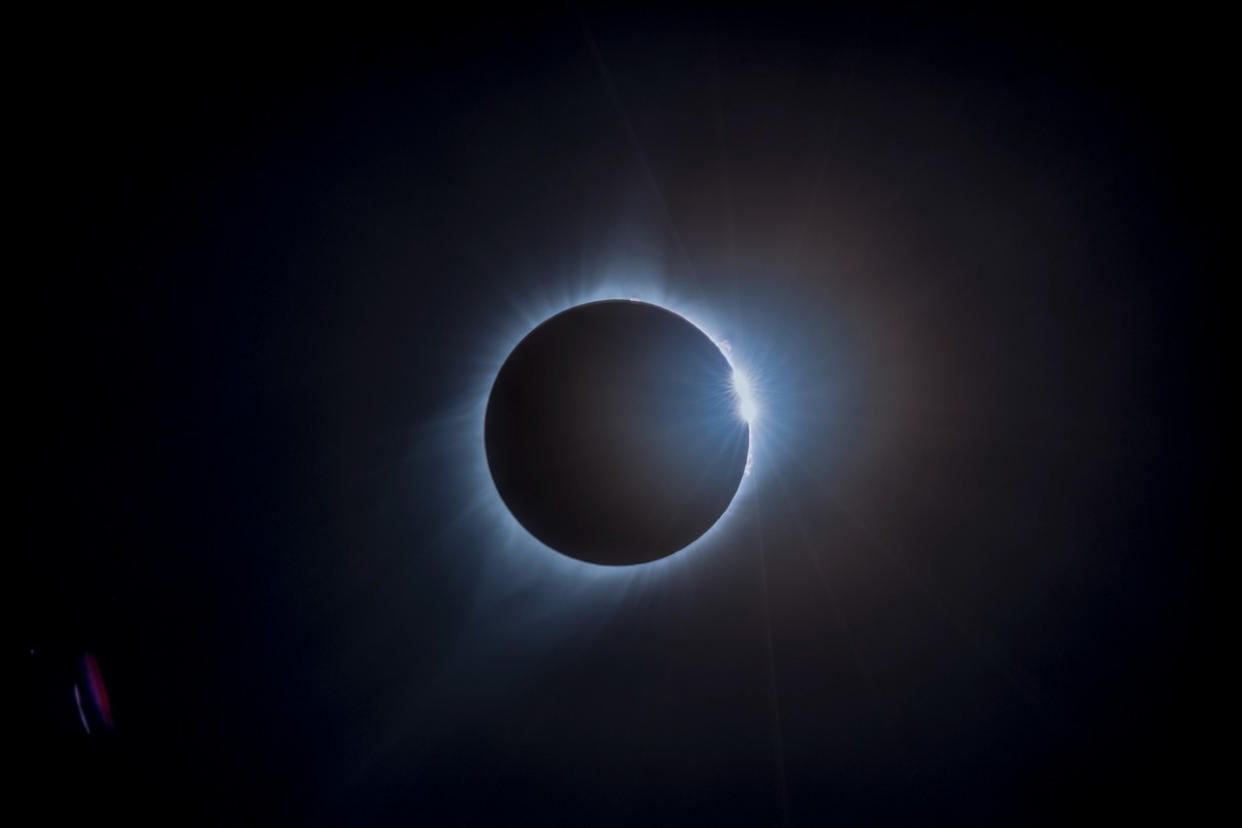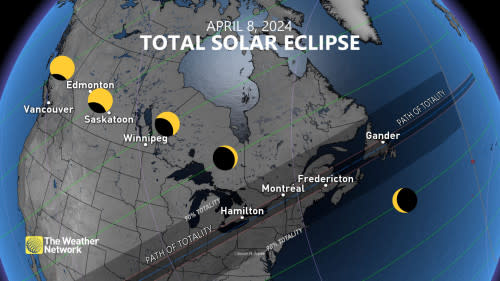Strange things may happen during the eclipse, and NASA wants you to document it

When the Sun's light fades during a total solar eclipse, nature will respond in ways you might not expect.
This once-in-a-lifetime celestial event will likely cause birds to fall silent, make crickets start chirping, and send bees back to their hives, fooled by the sudden darkness.
These peculiar behaviours have fascinated people for centuries, but their full impact on ecosystems remains a mystery.
DON'T MISS: Everything you need to know for April's spectacular and rare solar eclipse
To better understand what happens to animals when the lights go out, NASA has funded the Eclipse Soundscapes Project, which will document the sights and sounds of the upcoming total solar eclipse
On April 8, 2024, parts of North America will plunge into temporary daytime darkness as the Moon passes in front of the Sun.
Over 30 million people in North America will witness the event, offering a unique opportunity for large-scale citizen science.
When things get dark during a total solar eclipse, animals start to do interesting things!The Eclipse Soundscapes project invites people of all backgrounds/abilities to "sense" the April 8th solar eclipse and help study ecosystem impacts. Learn more: https://t.co/G0nRU95osW
When things get dark during a total solar eclipse, animals start to do interesting things!
The Eclipse Soundscapes project invites people of all backgrounds/abilities to "sense" the April 8th solar eclipse and help study ecosystem impacts. Learn more: NASA Citizen Science on Twitter: "When things get dark during a total solar eclipse, animals start to do interesting things!The Eclipse Soundscapes project invites people of all backgrounds/abilities to "sense" the April 8th solar eclipse and help study ecosystem impacts. Learn more: https://t.co/G0nRU95osW / Twitter"— NASA Citizen Science (@DoNASAScience) NASA Citizen Science on Twitter: "When things get dark during a total solar eclipse, animals start to do interesting things!The Eclipse Soundscapes project invites people of all backgrounds/abilities to "sense" the April 8th solar eclipse and help study ecosystem impacts. Learn more: https://t.co/G0nRU95osW / Twitter"
Volunteers can join the project to record sounds, make observations, and assist in data analysis. The project aims to build upon a historical study conducted after a 1932 eclipse. But this time around, in 2024, we will have the help of modern tools to document our findings.
To get involved and learn more about the Eclipse Soundscapes Project, visit the Eclipse Soundscapes website.

RELATED: How to safely watch the April 8 total solar eclipse
Other strange things that happen to the weather during an eclipse
Strange sounds and other unusual animal behaviour aren't the only things that can happen during an eclipse. In the past, regions have experienced eclipse-induced wind pattern changes. A 2016 study found that an eclipse of any kind—total, annular, or partial— can cause the wind to start blowing in another direction.
Bring a jacket if you head outside to enjoy the April 8th eclipse. During totality, it isn't uncommon for temperatures to fall, sometimes as much as 12 degrees Celsius.
WATCH BELOW: What you need to know about the upcoming solar eclipse
Header image: File photo courtesy of NASA.


